Debt Collection Agency in South Korea - No Win, No Fee
Your claims are handled exclusively by Barun Law LLC, our licensed Korean law firm (chaegwon chusim) with 27 years of expertise and Chambers Asia-Pacific ranking.

Your Advantage with Debitura for Debt Collection in South Korea

Fast, Simple & Risk-Free Debt Collection in South Korea
Debitura is a global, tech-enabled collections platform working with locally licensed agencies and law firms in 183 countries. In South Korea, your case is handled by Barun Law LLC, licensed attorneys-at-law in Seoul (established 1998 and ranked by Chambers and The Legal 500)
- Risk-free pricing: No fees unless we succeed.
- Quick setup: Submit invoices in a few clicks.
- Real-time tracking: Live status, actions, and payments in one portal.
- Compliance: Aligned with Korea’s Fair Debt Collection Practices Act, Credit Information Use and Protection Act, and Personal Information Protection Act.

Start recovering your Korean claims in 2 minutes
- Submit your claim: Upload your unpaid claim in minutes via the dashboard, REST API, or plug-and-play ERP integrations like Douzone WEHAGO / Smart A and YoungLimWon K-System.
- Local collection begins: We assign the case to Barun Law LLC, who contacts the debtor in Korean within 24 hours. If court action is needed, choose 1–3 fixed-price legal quotes (e.g., payment order or lawsuit) before anything proceeds.
- Get paid: Funds are remitted on recovery. If court action is needed, choose 1–3 fixed-price legal quotes before anything proceeds.


Transparent Pricing for Debt Collection in South Korea
With Debitura, you only pay when we succeed. In South Korea, fees are invoiced locally by Barun Law LLC in South Korean won (KRW), with any applicable Value-Added Tax (VAT) at 10%, per Korean VAT rules.
- No win, no fee: Pre-legal collection in South Korea is success-based; no setup costs or subscriptions.
- Local, transparent invoicing: Proceeds are remitted, and the success fee is deducted directly by Barun Law LLC.
- No hidden charges: Same clear, consistent terms worldwide.
- Legal action is optional: You approve fixed-price quotes before any legal spend.

Fast, Simple & Risk-Free Debt Collection in South Korea
Debitura is a global, tech-enabled collections platform working with locally licensed agencies and law firms in 183 countries. In South Korea, your case is handled by Barun Law LLC, licensed attorneys-at-law in Seoul (established 1998 and ranked by Chambers and The Legal 500)
- Risk-free pricing: No fees unless we succeed.
- Quick setup: Submit invoices in a few clicks.
- Real-time tracking: Live status, actions, and payments in one portal.
- Compliance: Aligned with Korea’s Fair Debt Collection Practices Act, Credit Information Use and Protection Act, and Personal Information Protection Act.
The ultimate guide about debt collection in South Korea (2026 Edition)
Why you can trust this guide
At Debitura, we uphold the highest standards of impartiality and precision to bring you comprehensive guides on international debt collection. Our editorial team boasts over a decade of specialized experience in this domain.
Questions or feedback? Email us at contact@debitura.com — we update this guide based on your input.
Debitura By the Numbers:
- 10+ years focused on international debt collection
- 100+ local attorneys in our partner network
- $100M+ recovered for clients in the last 18 months
- 4.9/5 average rating from 621 reviews
Expert-led, locally validated
Written by Robin Tam (16 years in global B2B debt recovery). Every page is reviewed by top local attorneys to ensure legal accuracy and practical steps you can use.
Contributing local experts:
Last updated:
Unravel the labyrinth of South Korean debt collection with Debitura, your guide bridging local knowledge with global savvy. This comprehensive guide ensures you're equipped to overcome domestic and international debt recovery challenges efficiently.
Unravelling The Players in South Korean Debt Recovery
Embarking into South Korea's debt recovery labyrinth, awareness of the key players' roles and duties is imperative. This includes diverse roles like debt collection agencies, bailiffs and debt collection lawyers, each orchestrating part of the debt recovery symphony within South Korea's strict legal melodious framework.
Debt Collection Agencies in South Korea
In South Korea, debt collection agencies provide a pivotal link between creditors and debtors, primarily steering clear from the courts in the initial phases. These agencies, operating under stringent regulations such as South Korea's Fair Debt Collection Practices Act, employ a variety of techniques including but not limited to direct communication, credit status checks, and demand letters aiming for an amicable debt resolution. For creditors, involving a collection agency becomes crucial when direct contact with the debtor fails or when specialized knowledge of local laws and debtor contact strategies is needed. Despite their proactive role in debt recovery, these agencies face limitations, being barred from using abusive tactics or engaging in actions considered as privacy invasion or threats, making their approach rely heavily on negotiation and persuasion. When extrajudicial methods fall short, these agencies can guide creditors through the next steps, including potentially escalating the matter to a judicial process with the support of legal professionals.
The Role of Lawyers in Debt Recovery in South Korea
Engaging a local Korean lawyer is a critical step for foreign creditors aiming for successful debt recovery in South Korea. The legal landscape regarding debt collection can be labyrinthine, and lawyers are pivotal in guiding creditors through this complex territory. Incorporating their services typically commences with analyzing the case merits, drafting and dispatching formal demand letters under the lawyer's name, and conducting financial investigations on debtor's assets for potential attachment. Moreover, they play a central role in filing lawsuits and requests for payment orders, ensuring the accurate application of the local judicial process. In cases requiring civil litigation or pursuing compulsory execution post-judgment, having experienced legal representation is invaluable. Lawyers also facilitate the registration of defaulting debtors, enhancing creditors' chances of recovering owed sums. Their comprehensive understanding of the Fair Debt Collection Practices Act in South Korea further assists in navigating the legal requirements whilst avoiding any actions that might contravene these standards. Engaging a lawyer is beneficial not only for legal representation but also for ensuring adherence to fair and lawful debt collection practices, thereby optimizing the recovery process.
The Role of Bailiffs in Debt Collection in South Korea
In South Korea, bailiffs, who are now more commonly referred to as enforcement agents, are essential figures in the later stages of the debt collection process. Their primary function kicks in after various attempts at voluntary debt repayment have failed, and a creditor has obtained a court judgment or order against the debtor. At this juncture, enforcement agents have the legal authority to carry out asset seizures, ensuring that creditors can recover owed funds by liquidating the debtor's property.
The steps leading to bailiff involvement necessitate a meticulous legal process, beginning with the issuance of a formal demand for payment and potentially culminating in a court order. This judicial endorsement is crucial, as it grants bailiffs the right to intervene directly, enabling them to visit the debtor's premises for asset evaluation and seizure, which are sold off to repay the outstanding debt. These actions are conducted within the protective framework of South Korea's Fair Debt Collection Practices Act, which meticulously outlines debt collector prohibitions to safeguard debtors' rights whilst underlining the legal authority of bailiffs to enforce repayment through the procurement and sale of assets.
Understanding South Korea's Debt Collection Legal Landscape
Navigating the intricacies of South Korea's debt recovery legalities is crucial for successful receivables. Adherence to these laws not only fosters efficient debt retrieval but also embeds fairness in the process, a necessity for maintaining sound business relations and corporate integrity.
The Regulatory Environment and Civil Court System in South Korea
South Korea boasts a civil law system influenced by systems observed in Germany, France, and Japan, augmented by its robust constitution and laws.
- Courts of First Instance: These courts handle initial case filings and include the Family Court, Administrative Court, and Constitutional Court. Their decisions can be subject to review at higher judicial levels.
- Appellate Courts: The Patent Court and High Court fall into this category, reviewing decisions from first-instance courts and specific bodies like the Intellectual Property Trial Board and the Korean Fair Trade Commission.
- The Supreme Court: At the apex of the court hierarchy, the Supreme Court serves as the final appellate body, addressing disputes that have progressed through the judicial system.
This hierarchal structure ensures a comprehensive legal framework for civil proceedings, including debt collection efforts. With all proceedings conducted in Korean, it's advisable for international creditors to enlist local legal expertise to navigate the judicial system effectively.
Key Legislation Impacting Debt Collection in South Korea
In South Korea, debt collection activities are regulated under a precise legal framework, ensuring fair practices and protecting both creditors’ and debtors’ rights.
- Fair Debt Collection Practices Act - This Act prohibits debt collectors from using abusive, unfair, or deceptive practices and outlines procedures for debt collection, aiming to balance creditors' rights with consumer protection.
- Civil Procedure Code - Governs the procedures for litigation in civil courts, which is pivotal for creditors seeking to recover debts through legal action, including suits for payment orders and provisional attachments.
- Bankruptcy Act - Outlines the legal processes for insolvency and bankruptcy, critical for recovering debts from insolvent debtors or navigating situations when debt recovery intersects with bankruptcy proceedings.
The intricate interplay of these laws in South Korea's legal landscape produces a robust system for debt collection that respects the due process while ensuring efficient debt recovery. Both domestic and international creditors should familiarize themselves with these regulations to navigate the debt collection process effectively.
Consumer Protection from Unfair Collection Practices in South Korea
In South Korea, stringent regulations protect consumers from unfair debt collection practices, ensuring a balance between creditor rights and debtor dignity.
- The Fair Debt Collection Practices Act prohibits abusive practices by debt collectors, such as threats, coercion, or providing false information.
- Privacy and fairness are paramount, with regulations against invading a debtor's privacy or demanding payment from unauthorized individuals.
- Engagement of legal actions in debt collection by non-attorney debt collectors is strictly forbidden, ensuring only qualified professionals handle sensitive legal proceedings.
- Debt collection agencies must follow specific steps before contacting a consumer, including issuing debt certificates and meeting notification requirements.
- Violations of these protections can result in significant penalties, including fines and imprisonment, providing a robust recourse for aggrieved consumers.
These consumer protections in South Korea embody a principled approach to debt collection, emphasizing respect, fairness, and transparency. By enforcing regulations that prevent abusive collection practices, South Korea maintains a system that respects debtor rights while enabling creditors to recover debts effectively.
Understanding Amicable Debt Collection in South Korea
How does amicable, or pre-legal, debt collection work in South Korea? This concise guide delves into the efficient strategies and critical aspects of this process, sidestepping legal complications for swift debt resolution, and often undertaken by specialized agencies.
- Initial Steps and Communication Regulations: Debt collection agencies begin with a creditor's claim, contacting debtors in Korean.
- Escalation Procedures: If amicable methods fail, the process may escalate to judicial proceedings with client consultation.
- Fees and Costs: Governed by the Fair Debt Collection Practices Act, prohibiting unreasonable expenses.
- Statute of Limitations: Legal action is limited by a statutory period, crucial for timely debt recovery.
- Penalties and Fines: Non-compliance with regulations can result in fines or imprisonment for offenders.
- Collection Strategies: Includes checking prescription period, sending demand letters, and applying for provisional attachments.
- Statutory Interest Rates: Late payments incur a 5% per annum interest rate for civil cases, and 6% for commercial cases.
- Consumer Protection: The Act prohibits invasive and abusive collection practices, with violators facing legal penalties.
- Transition to Judicial Debt Recovery: Key decision when amicable attempts fail requiring legal intervention.
Navigating Amicable Debt Collection in South Korea
In South Korea, amicable debt collection is a preferred initial approach for creditors, focusing on a constructive and non-confrontational method to recovering dues. This approach fosters a positive and understanding relationship between the creditor and debtor, aiming to find amenable solutions that respect the debtor’s financial situation while securing the creditor's financial interests. This non-adversarial method is especially advisable for straightforward, non-disputed claims, steering clear of the complexities and financial burdens associated with legal proceedings.
Given the intricacies of South Korean regulations, beginning with an amicable approach to debt collection is highly recommended unless the claim is contested or involves intricate legal matters.
The Collection Agency's Role in Amicable Debt Recovery in South Korea
Agencies like Debitura play a crucial role in the amicable debt recovery process in South Korea, delivering specialized expertise particularly beneficial for international creditors unfamiliar with local regulations. Our services kick off with an accurate determination of the debt and debtor details, progressing to initiate communications through reminders or formal notices in Korean. Leveraging an impartial and professional mediation stance, Debitura effectively bridges the gap between creditor and debtor, often leading to successful debt recovery.
Advantages of Amicable Debt Resolution
Choosing amicable resolution in South Korea bears numerous advantages for both parties involved. Creditors not only bypass the additional costs associated with legal actions but also maintain valuable business relationships, thanks to the respectful and empathetic nature of this process. On the other side, debtors often find themselves facing more flexible repayment terms, alleviating financial stress and possibly nurturing a more positive perception of the creditor. This method emphasizes mutual respect and understanding, fostering a cooperative atmosphere conducive to resolving financial responsibilities.
Transitioning from Amicable to Legal Collection in South Korea
While amicable collection in South Korea presents many benefits, situations might arise that necessitate shifting towards legal action. Indicators suggesting this transition include lack of responsiveness, continuous failure to fulfill promises, or deliberate attempts by the debtor to evade obligations. Opting for legal action is a significant decision, considering the expenses and time commitments involved. It is generally contemplated only after all amicable avenues have been meticulously explored and exhausted.
Amicable Debt Collection Costs in South Korea
Debitura upholds a no-success, no-fee policy, ensuring value for international creditors seeking amicable debt collection in South Korea. Our process dispenses with upfront fees or subscriptions, assessing a success fee only upon successful debt recovery. This fee ranges between 7.5% to 30%, depending on the case's specifics. For a hassle-free start and a personalized quote, learn more about our pricing here.
How it Works
Amicable debt recovery in South Korea typically unfolds over 2-3 months with Debitura. Our streamlined process is outlined below:
- Sign Up for Free: Begin without initial costs. Create your account here.
- Upload Your Claim: Submit your claim, review the success fee, and confirm to initiate the recovery process.
- Track Progress: Stay updated on the amicable recovery process through real-time monitoring on your Debitura dashboard.
- Consider Legal Action: If amicable resolution remains elusive, we'll facilitate three quotes from local attorneys for potential legal action, empowering you to make informed decisions.
Understanding South Korea's Judicial Debt Collection
When diplomatic channels to recover debts fail, the transition to judicial debt collection becomes inevitable. More commonly referred to as legal debt collection, it involves acquiring a court order for claim enforcement, typically entailing bailiffs' engagement. In this segment, we breakdown the intricacies of South Korea's specific judicial debt collection process.
- Hierarchical Court System: Includes ordinary, military, and the Constitutional Court, with the Supreme Court at the apex.
- Legal Framework: Governed by the Fair Debt Collection Practices Act, Civil Code, and Commercial Code, regulating ethical debt recovery.
- Consumer Protection: The Fair Debt Collection Practices Act protects against harassment and unethical behaviors, with stringent penalties for violators.
- Judicial Debt Collection Process: Involves analysis, demand letters, financial investigations, litigation, execution of judgments, and asset verification.
- Strategies for Debt Recovery: Advocates early involvement of a Korean attorney, checking the debt's statute of limitations, and exploring mediation before litigation.
- Electronic Case Filing System (ECFS): Enhances efficiency, accessibility, and transparency in litigation processes via electronic procedures.
- Small Claims Procedures: For disputes not exceeding 30 million KRW, offering immediate hearings and a simplified appeals process.
- Appropriate Court for Claims: Claims up to 30 million KRW go to small claims court; those up to 500 million KRW by a single judge; larger claims by a panel of three judges.
- Enforcement of Judgments: Post-judgment, enforcement through property attachment and selling of debtor's assets to recover owed amounts.
- Legal Representation and Court Proceedings: Recommends involving a local Korean lawyer for guidance through court order procurement and judgment enforcement.
Shifting from Amicable to Judicial Debt Collection in South Korea
When engaging in debt recovery in South Korea, creditors typically start with amicable collection methods. These include negotiations, mediation, and sending demand letters. However, when these measures do not yield results due to disputes or the debtor's refusal to engage, the transition to judicial debt collection becomes necessary. This shift enables the creditor to enforce the recovery through legal channels.
At this juncture, the presence of legal counsel or a representative is vital. A Korean attorney can navigate the complexities of South Korea’s legal system, ensuring that the debt collection process is handled efficiently and effectively. Early involvement of legal expertise can preempt potential challenges, making legal representation not just important but essential in judicial debt recovery efforts.
The Importance of a Formal Judgment in South Korea
Obtaining a court order is a crucial step for enforcing a debt in South Korea. This formal judgment provides the legal backing necessary to pursue measures such as asset seizure, salary garnishment, and other enforcement actions. To secure a court order, creditors must present their case convincingly, substantiating their claim against the debtor.
Getting a court order in South Korea entails initiating a lawsuit through the filing of relevant documents and evidence. Engaging a local Korean lawyer early in the process is crucial for success, as they can thoroughly prepare the necessary legal filings and represent the creditor in court proceedings diligently.
Determining the Appropriate Court in South Korea
South Korea has a tiered court system that handles debt recovery cases based on the claim's nature and value. The choice of court largely hinges on the size and complexity of the claim. For instances not exceeding 30 million KRW, the small claims court offers a streamlined process designed for prompt resolution. Claims over 30 million KRW require navigating through district courts, where a single judge or a panel may hear more substantial or complex cases.
The criteria for selecting the appropriate court also factor in the specifics of the debt, such as whether it’s commercial or consumer-related. This distinction influences not just the court chosen but also the legal strategies and procedures employed. Thus, understanding these nuances is vital for ensuring that debt recovery actions are pursued in the most suitable legal venue, optimizing outcomes for creditors.
Small Claims Court in South Korea
In South Korea, the small claims court serves as a streamlined legal process designed to address disputes involving claims that do not exceed 30 million KRW. This system, focusing on the resolution of minor financial disputes, prioritizes efficiency and expediency. Litigants benefit from immediate scheduling of hearings after the submission of a complaint, often leading to resolution after a single hearing. Notably, the Trial of Small Claims Act simplifies the procedure by allowing litigants to represent themselves or be represented by close relatives without needing formal court approval, provided the necessary documentation is provided. A unique feature of this process is the “Decision on Performance Recommendation,” which the court may issue, urging the defendant to satisfy the claim without formal objection. This recommendation carries the same legal weight as a final judgment, offering an enforceable resolution without undergoing a full hearing. This system underscores South Korea's commitment to making justice accessible and reducing the time and resources typically required for legal disputes.
Ordinary Proceedings in South Korea
In South Korea, ordinary proceedings serve as the primary method for resolving civil disputes that exceed the financial limit of 30 million KRW, applicable in small claims court. Compared to the streamlined small claims process, ordinary proceedings offer a more comprehensive review of complex legal issues and larger claim amounts. This traditional court process allows for a deeper examination of evidence, legal arguments, and the application of the broader scope of South Korean civil law. A key advantage of ordinary proceedings is their suitability for more substantial and intricate cases, providing parties with the opportunity for a full hearing and presentation of their case.
Legal representation plays a crucial role in ordinary proceedings. The complexity of cases handled through this process often necessitates the expertise of a qualified legal professional. Engaging a competent attorney is not only advisable but, in many instances, essential for navigating the intricate legal landscape, ensuring adherence to procedural requirements, and effectively advocating on one’s behalf. In South Korea, the Fair Debt Collection Practices Act, alongside specific civil procedure regulations, governs ordinary proceedings, ensuring fairness, transparency, and due process for all parties involved.
Enforcing Debt Rulings in South Korea
Once a court order has been successfully achieved in the judicial debt collection phase in South Korea, the transition to enforcing such rulings, known as debt enforcement, commences. Under the watchful eye of official bailiffs, this permits creditors to secure the debtor's assets, ensuring claim settlement.
- Regulated Debt Collection: Governed by the Fair Debt Collection Practices Act, focusing on fair practices and rights' protection.
- Debt Certificate Issuance: Debt collectors must issue debt certificates upon request, crucial for formal debt validation.
- Prohibition on Legal Action: Except for attorneys-at-law, debt collectors cannot undertake legal actions in debt collection.
- Harassment and Violence: Strictly prohibited in debt collection processes, ensuring ethical and humane practices.
- Debt Enforcement Procedures: Steps include proof of debt, lawsuit filing, and post-judgment enforcement, requiring expertise.
- Authority of Enforcement Agents: Granted legal powers to enforce debt collection, differentiating them from debt collectors.
- Consumer Protection: Rights and prohibitions aimed at protecting consumers from abusive debt collection tactics.
- Garnishment Laws: Governs wage garnishment, with clear guidelines on the percentages that can be seized from debtor’s income.
- Asset Seizure: Legal framework for confiscating assets, emphasizing value-based confiscation and procedural fairness.
Understanding the Enforcement Process of Debts in South Korea
In the rigorous and detail-oriented landscape of South Korean debt enforcement, the initiation by the creditor plays a pivotal role. This process activates once an enforceable title, such as a court judgment or a formal agreement, conclusively establishes the debtor's obligation. Following this, bailiffs, acting with legal authority, embark on the task of locating the debtor’s assets. These assets, potentially including real estate and personal properties, undergo seizure except for those essentials safeguarded to maintain the debtor's basic living standards.
Key Steps in Enforcing Debts: From Legal Action to Asset Seizure
A crucial step involves the creditor’s legal preparations, underpinned by the necessity of possessing a valid and enforceable title. Subsequently, a formal demand is sent, possibly via content-certified post, to firmly communicate the impending enforcement proceedings. Should the debtor fail to meet their obligations, the creditor might seek a provisional attachment order aimed at freezing the debtor's assets, setting the stage for a streamlined recovery process without necessitating court appearances.
The Critical Role and Responsibilities of Enforcement Agents
South Korea designates specialized enforcement agents, tasked with not only seizing debtor's assets but also ensuring their sale, often through auctions. These agents operate within a strict legal framework, ensuring an equitable balance between recovering creditors' claims and protecting debtor’s rights. The sale proceeds are methodically allocated to satisfy the creditor's demands, demonstrating the justice system's commitment to fairness and legal integrity.
The Financial and Legal Considerations in Debt Recovery
Engaging in debt enforcement in South Korea incurs specific costs, including those for court proceedings, enforcement agents, and legal consultations. Creditors must judiciously consider these expenses, which vary depending on the complexity and duration of the case. South Korea’s legal system meticulously outlines the procedures, responsibilities, and rights of all parties, promoting transparency and ensuring the equitable treatment of creditors and debtors alike.
Preparatory Actions Prior to Enforcement
Before leaping into enforcement, creditors engage in critical preparatory steps, crucial among these being the verification of a valid, enforceable title. A final demand for payment is usually dispatched to the debtor, offering the last opportunity for voluntary debt settlement. This phase holds immense significance as it upholds the debtor's rights to dispute or challenge the enforcement, emphasizing the legal system’s dedication to fairness and due process.
Understanding the Insolvency Process for Debt Recovery in South Korea
When a debtor falls into insolvency, meeting financial commitments becomes an uphill battle. Most conventional measures, such as seizing assets through court orders, often don't bear fruit due to the scarcity of retrievable assets. In such scenarios, it's essential to resort to bankruptcy proceedings - a structured legal process meant to methodically liquidate the debtor's assets. This process serves as a last-ditch effort to recover a part of the outstanding claims.
- Initiation: Creditors can initiate bankruptcy as a strategy for debt collection in financial distress cases.
- Court-Sponsored Rescue: A protective composition process aids in rescuing financially troubled businesses, requiring majority creditor approval.
- Reorganisation Scheme: Insolvent entities may undergo reorganisation if deemed capable of rescue, necessitating creditor consensus.
- Liquidation Directive: In the absence of a viable composition or reorganisation scheme, the court orders business winding up.
- Trustee Appointment: An independent trustee is appointed to oversee the insolvency, reorganisation, or liquidation process.
- Criminal Offense Removal: Decriminalization of bankruptcy by default removes the risk of imprisonment for failing to declare bankruptcy timely.
- Legislative Modernisation: Although streamlining processes, the New Law doesn't diverge significantly from traditional Commercial Code practices .
Insolvency Procedures and Strategies in South Korea
In South Korea, addressing financial distress through insolvency represents a critical juncture for both debtors and creditors. The legal foundation for insolvency, rooted in the bankruptcy procedures and the proposed Consumer Credit Act, aims to provide a fair, structured process for the liquidation or rehabilitation of the debtor's finances. With cases filed at district courts encompassing both individual debtors and businesses, the process strategically allocates assets to meet creditor claims while aiming to ensure economic recovery. Notably, South Korea's judiciary system—with its complex hierarchy from district courts to the Supreme Court—plays a pivotal role in facilitating insolvency proceedings, underscoring the importance of judicial reform and the adaptation of e-courtrooms and electronic filing systems to enhance the efficiency and transparency of legal processes.
Rights of Creditors and Prioritization of Claims
In the realm of insolvency in South Korea, creditors stand within an organized hierarchy of claim prioritization, which significantly influences recovery outcomes. As defined by the Fair Debt Collection Practices Act, this categorization distinguishes between secured and unsecured claims, underscoring the necessity for creditors to proactively register and validate their claims. Engaging in negotiations, participating in creditor committees, and understanding the legislative nuances, like prohibitions against violent collection methods and the significance of ethical debt collection practices, can be decisive in enhancing recovery prospects.
Navigating Costs and Timelines in Insolvency Proceedings
The insolvency journey in South Korea is marked by variability in costs and duration, incorporating court fees, administrative expenses, and legal representation costs—which are initially borne by the debtor's estate. Factors such as the case's complexity, claim volume, and legal intricacies contribute to the fluctuating timelines, urging creditors to brace for extended periods of legal proceedings. This variability highlights the crucial impact of recent legal reforms, such as the adoption of the Electronic Case Filing System (ECFS) and e-courtrooms, designed to streamline processes and improve the overall efficiency and accessibility of the judiciary system for stakeholders involved in insolvency cases.
Find a Local Debt Collection Lawyer
Need court-ready representation? Share your case once and receive up to three proposals from vetted litigation attorneys—free, fast, and with no commitment.
- Verified specialists
- Quotes in 24 h, no hidden fees
- Fair, pre-negotiated rates

Ahnse Law Offices is a premier law firm in Seoul offering effective Debt Collection services in South Korea, established in 2003, recognized for its strategic solutions and a member of MSI Global Alliance and IR Global.
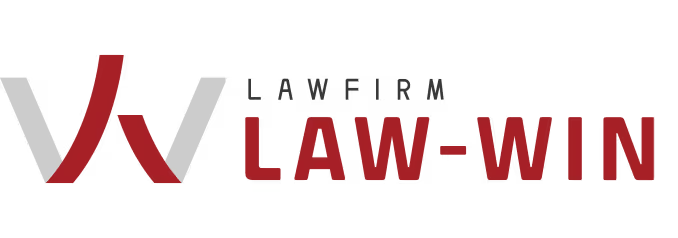
Law-Win is a premier law firm in Seocho-gu offering effective Debt Collection services in South Korea, positioning itself as the go-to partner for debt recovery since 2016, with accolades as a top 50 domestic law firm and international client services.
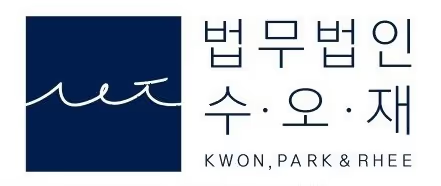
Suojae - Kwon, Park & Rhee is a premier law firm in Seoul offering effective Debt Collection services in South Korea, positioning itself as the go-to partner for debt recovery with a global reach in 183 countries and SCG Legal network membership since 2018.
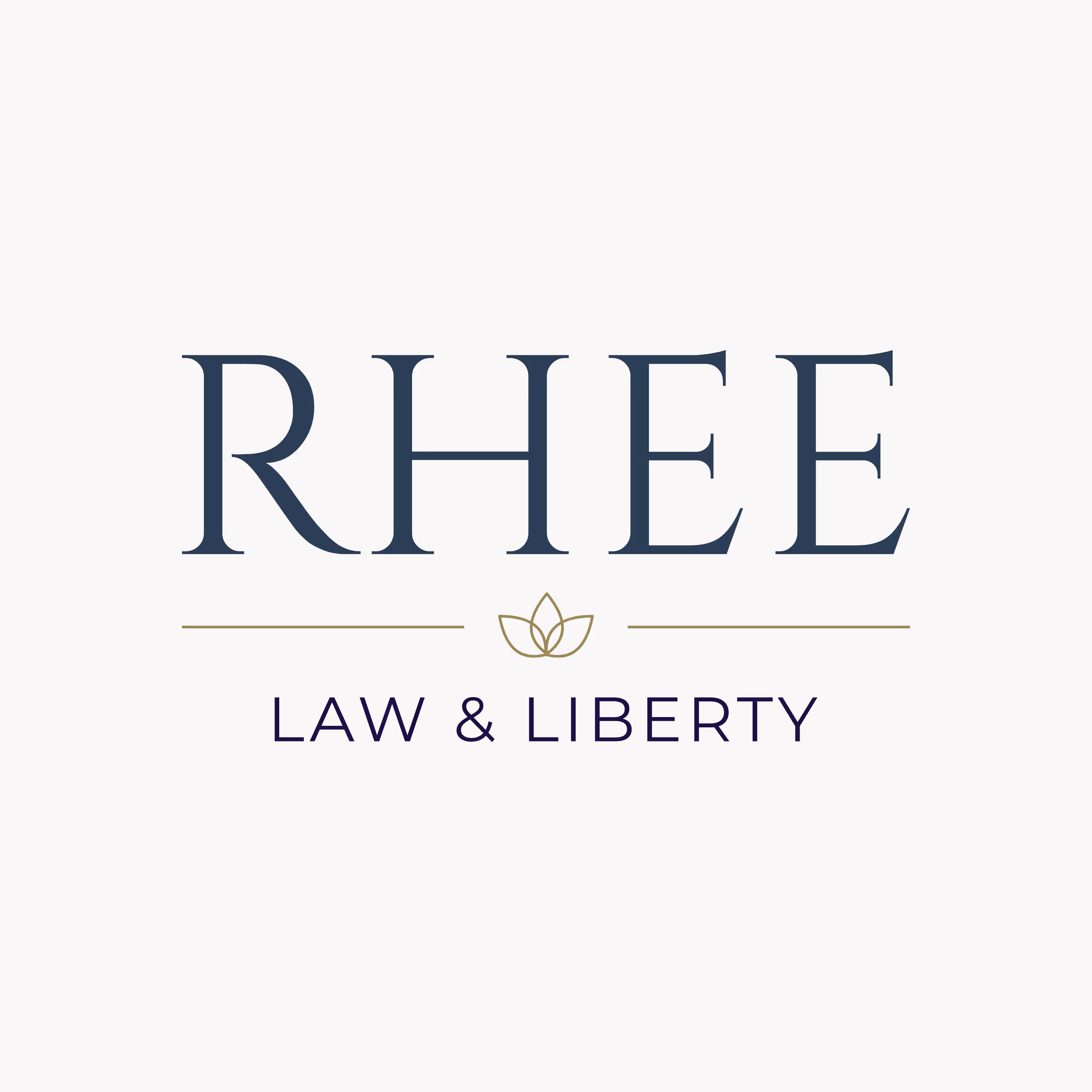
Rhee's Law Office is a premier law firm in Paengseong-eup Pyongtaek-si offering effective Debt Collection services in South Korea, renowned for its 15 years of experience, serving numerous international clients, and proudly affiliated with the Korean Bar Association since 2010.

SM Credit Information is a premier debt recovery agency in Seodaemun-gu offering effective Debt Collection services in Korea, established in 1999, serving clients like Hyundai and SK, with a network in 90+ countries, and memberships in ACA International and IACC.
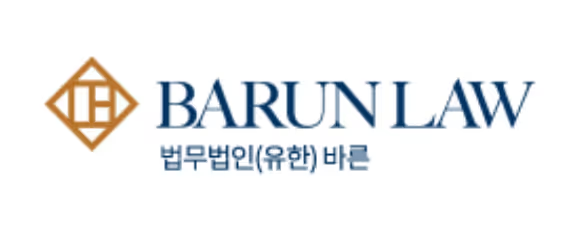
Barun Law LLC is a premier law firm in South Korea offering effective risk-free debt collection services, positioning the firm as the go-to partner for debt recovery in the country; established in 1998, it is an exclusive Debitura partner offering No Cure No Pay debt collection based on Debitura's risk-free standard terms and pricing, with accolades from Legal 500 and Chambers and Partners, and serving multiple countries including the USA, Japan, and China.
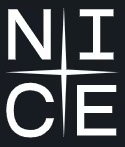
NICE Credit Information Service Co., Ltd. is a premier debt recovery agency in Seoul offering effective Debt Collection services in South Korea, established in 1986, recognized with the Million Award for Export Performance, and serving additional markets in Vietnam, Cambodia, Thailand, and Indonesia.





.svg)

.webp)
.png)

.png)
.svg)












.svg)

